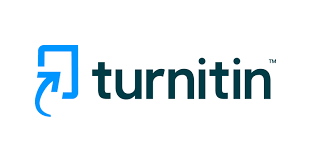INDONESIAN FOOD INDUSTRY ON HALAL SUPPLY CHAINS
Abstract
Keywords
Full Text:
PDFReferences
Abidin FAZ, Hassan FM, Mat Zin NS, Wan Azmi WN, Ismail MI. 2019. Halal System In Meat Industries. Malaysian Journal Of Halal Reserch Journal. 1.
Al-Ansi A, Olya HGT, Han H. 2018. The Effect Of General Risk On Trust, Satisfaction, And Recommendation Intention For Halal Food. International Journal of Hospitality Management. 1.
Alhabshi SM. 2013. Halal Food Dilemmas: Case Of Muslims In British Columbia, Canada. International Journal of Asians Social Sciences. 850.
Azizi Y, A. 2013. The Role of Halal Awareness, Halal Certificates, and Marketing Components in Determining Halal Purchase Interest among Non-Muslims in Malaysia: A Structural Equatuon Modeling Approach. Journal of International Food & Agribusiness M, 1-23.
Baharuddin K, Kassim NA, Nordin SK. 2015.Understanding the Halal Concept and the Importance of Information on Halal Food Business Needed by Potential Malaysian Entrepreneurs. International Journal of Academic Research in Business and Social Sciences 5 (2) February.
Bahrudin, SSM, Illyas, MI, Desa, MI. 2011. Tracking and Tracing Technology For Halal Product Integrity Over The Supply Chain. Bandung. Dictionary.com (2015). Definition on Integrity.
Dayang H, Diana A, Amran H, David M. 2017. Key Challenges And Issues Consumers Face In Consuming Halal Products. HR Mars. 590
H Kagermann, WW. 2013. Wahi Recommendations for Implementing the Industry Initiative 4.0 Working Group Strategy. Forschungsunion: Acatech. Forschungsunion: Acatech
Halawa A. 2018. Acculturation of Halal Food To Chinese Food Culture Through The Ancient Silk Road and Hui Minority Nationality. International Journal of Humanities and Cultural Studies. 85
Harmen S, Faridah Y. 2014. Gelatin As An Ingredient in Food and Pharmaceutical Products: An Islamic Perspective. AENSI Journals: Advances In Environmental Biology.774
Ismail RBM, Mustafar M, Othman SN. 2018. Genetically Modified Food In Malaysia Halal Food Supply Chain: An Insight. International Journal of Supply Chain Management. 86
Jaafar, HS, Faisol, N. Rahman, FA. Muhammad, A. 2015. Halal Logistics vs Halal Supply Chain. Conference Proceedings in INHAC 2014. IHIAS (2010).
International Halal Logistics Standards IHIAS 0100: 2010. Retrieved fromhttp://halalsupplychainmanagement.blogspot.com/2013/10/the-international-halal-logistics.html, Accesed on June, 20, 2019
Kamaruddin, R., Iberahim, H, Shabudin, A. 2012. Halal Development System : The Institutional Framework, Issues and Challenges For Halal Logistics. IEEE Symposium in Business, Engineering and Industrial Applications. 760-765
Khan MI, Haleem A, Khan S. 2018. Defining Halal Supply Chain Management. Supply Chain Forum: An International Journal.1
Krishnan S, Mohd Aderis MHH, Azman MN, Kamaluddin MNA. 2017. Halal Food: Study On Non-Muslim Acceptance. American Journal of Economics. 42
Lambert DM, Cooper MC. 2000. Issues in Supply Chain Management. Industrial Marketing Management 29 (1) : 65-83.
Lubis HN, Mohd-Naim NF, Alizul NN, Ahmed MU. 2016. From Market to Food Plate: Current Trusted Technology and Innovations in Halal Food Analysis. Journal of Trends in Food Science and Technology. 55.
Majid MAA, Abidin IH, Abd Majid HAM, Chik CT. 2015. Issues Of Halal Food Implementation In Malaysia. Journal of Applied Environmental and Biological Sciences. 51
Mat Isa MPBM, Ismail RM. 2015. Understanding The Level Of Halal Awareness Among Muslim And Non-Muslim Young Consumers In Malaysia. Proceedings of Symposium on Technology Management and Logistics (STML Go Green). 43
Muhammad NSM, Wan Rashid WE, Ariffin NM, Mohd Rashid N. 2014. Muslim's Purchase Intention Towards Non Muslim's Halal Package Food Manufacturer. Procedia-Social And Behavioral Sciences. 147
Nakyinsige K, Che Man YB, Sazili AQ. 2012. Halal Authencity Issues in Meat and Meat Products. Journal of Meat Science . 208
Ngah, AH, Zainuddin Y. 2012. Barriers To Adoption Among Halal Supply Chain Malaysian Halal Manufacturers With General Barriers As A Moderating Factor. Conference proceedings on INHAC 2012.
Noorsiah A, Shariff SM. 2015. Supply Chain Management: Include Cleansing For Halal Logistics Integrity. Procedia Economics and Finance. 419.
Omar, EN, Jaafar, HS, & Osman, MR. 2012. Assessing Halalan-Toyyiban Food Supply Chain In The Poultry Industry. Procedia - Social and Behavioral Sciences.1-9
P. Zang, GV. 2002. Use Expecations and Rankings of Quality Factors in Different Websites. International Journal of Electronic Commerce, 9-33.
Rohana K., Hadijah I, Alwi S. 2012. Willingness To Pay For Halal Logistics: The Lifestyle Choice . Procedia-Social and Behavioral Science, 5, 722-729.
Santo Y. 2018. Modern Halal Valley The First Biggest Halal Cluster is Inaugurated. Retrieved from Republika. Accesed on April, 05, 2019
Son JM, Chandia M, Regenstein JM. 2017. Halal Integrity In The Food Supply Chain. British Food Journal. 41
Son JM, Wallace C. 2017. Application Of Theory Of Planned Behavior In Purchasing Intention And Consumption Of Halal Food. Journal of Nutrition & Food Science. 635
Tieman M, Van der Vorst JG, Ghazali MC. 2012. Principles in Halal Supply Chain Management. Journal of Islamic Marketing 3 (3) : 217-243.
Tieman M. 2012. Control Of Halal Food Chains. Islam and Civil Renewal 3 (3) : 538-542.
Tieman M, VD Vorst, Ghozali MC. 2012. Principles in Halal Supply Chain Management. Journal of Islamic Marketing 3 (3).
Tieman, M. 2008. Halal Transportation-The Building Blocks Of A Halal Transportation System. The Halal Journal. January-February. 2008-2009
Tieman M, Ghazali MC. 2014. Halal Control Activities And Assurance Activities In Halal Food Logistics. Procedia-Social and Behavioral Sciences. 47.
Yacoob TZ, Jaafar HS, and Rahman FA. 2016. An Overview of Halal Food Product Contamination Risks During Transportation. Sci.Int. (Lahore) 28 (3) : 3183-3190.
Yang H. Huang L. 2017. Research On Influencing Factors Of Halal Food Buying Behaviors By Non Muslim Consumers: A Case Study Of Ningxia In China. Journal of Bolet In Tecnico. 688.
Yulia, OY 2000. Use of Internet Technology in Business. Journal of Accounting & Finance, 4.
Yusoff FAM, Yusof KNR, Hussin SR. 2015. Halal Food Supply Chain Knowledge and Purchase Intention. International Journal of Economics and Management. 155.
Yasid, Farhan F, Andriansyah Y. 2015. Factors Affecting Muslim Students Awareness Of Halal Products In Yogyakarta, Indonesia. International Review of Management and Marketing. 27.
Zulfakar MH, Anuar MH, Ab Talib MS. 2014. Conceptual Framework On Halal Food Supply Chain Integrity Enhancement . Procedia Social and Behavioral Sciences. 59.
DOI: http://dx.doi.org/10.33512/fsj.v1i2.6475
Refbacks
- There are currently no refbacks.

This work is licensed under a Creative Commons Attribution-ShareAlike 4.0 International License.











